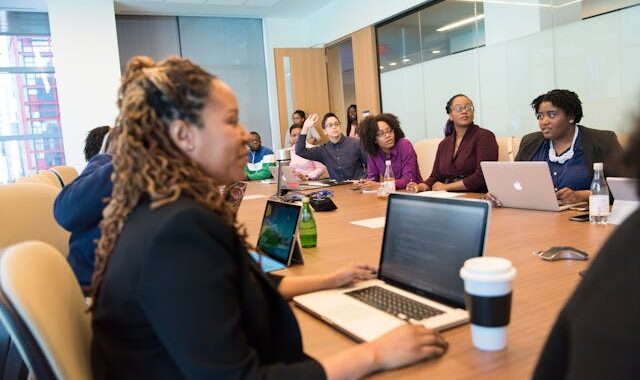
The ability to transfer critical information and skills effectively from one team to another, from seasoned professionals to newcomers, or from current leaders to future ones is pivotal. This process, known as knowledge transfer, is fundamental to maintaining organizational continuity, enhancing employee skills, and securing a competitive edge.
In this article, we will dive into the top 10 frequently asked questions about knowledge transfer.
Related articles:
Definition
Knowledge transfer refers to the systematic approach of sharing or disseminating knowledge from one person, team, department, or organization to others within the company. This process ensures that valuable skills, information, and expertise are passed along efficiently and retained within the organization, even as employees transition in and out of various roles. Effective knowledge transfer is critical for organizational learning, continuity, and competencies development, aiding in maintaining a competitive edge and operational efficiency.
10 frequently asked questions about Knowledge Transfer
What are the best practices for effective knowledge transfer in an organization?
Effective knowledge transfer is crucial for maintaining competitiveness and fostering innovation within an organization. Implementing structured onboarding programs and pairing new hires with mentors can significantly enhance the transfer of essential knowledge and skills. It’s important to document critical processes through manuals and guides that are readily accessible to all employees.
Additionally, regular training sessions and promoting job shadowing and cross-training can help diversify employee skills and prevent knowledge silos. Leveraging technology, such as intranets and collaborative tools, is essential for facilitating efficient knowledge sharing across the organization.
Fostering a culture that values and rewards knowledge sharing is also vital. Recognizing employees who contribute to knowledge transfer can motivate others to engage in these practices. Regular feedback on the effectiveness of knowledge transfer activities helps organizations refine their strategies and ensure continuous improvement.
Incorporating knowledge transfer into succession planning is also important to ensure continuity in key positions.
How does technology impact the knowledge transfer process?
Technology plays a pivotal role in enhancing the knowledge transfer process within organizations. Modern tools such as collaborative platforms, knowledge management systems, and intranet solutions facilitate the seamless sharing of information across different departments and teams. These technologies help in breaking down geographical and departmental barriers, enabling real-time communication and collaboration among employees.
For instance, cloud-based document sharing and virtual meeting spaces allow team members to work together and share expertise, regardless of their physical locations. Scalable cloud instances empower HR teams to streamline knowledge transfer, leveraging advanced technologies to create immersive, interactive, and accessible learning experiences. Additionally, advanced technologies like AI and machine learning can curate personalized learning experiences and recommend resources based on individual learning patterns and needs, thus optimizing the learning process.
Moreover, technology not only speeds up the transfer of knowledge but also ensures that it is consistent and up-to-date. It provides a central repository where all organizational knowledge can be stored, easily updated, and accessed by anyone in the organization, ensuring that the same level of information is available to all. This democratization of knowledge leads to more informed decision-making and a more agile workforce.
What challenges do companies face during knowledge transfer?
Companies often encounter several challenges when trying to implement effective knowledge transfer, which can hinder their ability to share vital information and skills efficiently. One major issue is overcoming the resistance to change that some employees might exhibit. This resistance can stem from a fear of redundancy or an unwillingness to adopt new methods and technologies. Encouraging a culture that embraces continuous learning and showing the tangible benefits of knowledge sharing can help mitigate this resistance.
Another challenge is the difficulty in capturing tacit knowledge—information that employees have gained through personal experience, which is not easily expressed or documented. Organizations must find creative ways to articulate this kind of knowledge, perhaps through storytelling, mentorship, or hands-on demonstrations, to ensure it is effectively passed on.
Also, there is the ongoing need to keep information up-to-date. In fast-moving industries, knowledge can quickly become obsolete. Ensuring that the latest, most relevant information is always available requires systems that can be easily updated and maintained. Addressing these challenges requires a strategic approach to knowledge management and a commitment to fostering an inclusive and collaborative company culture
Can knowledge transfer help in reducing the skill gap in companies?
Yes, knowledge transfer is a powerful tool for reducing the skill gap within companies. By effectively sharing expertise and information from seasoned employees to newer or less experienced ones, organizations can rapidly elevate the overall skill level across their workforce. This process ensures that valuable insights and competencies are not lost but are instead actively disseminated, helping all employees perform at a higher level.
Moreover, structured training programs and mentorship initiatives facilitate continuous learning and development, allowing employees to acquire new skills relevant to their roles. This proactive approach not only fills current skill gaps but also prepares the workforce for future challenges and technological advancements, ensuring the company remains competitive and adaptable in a rapidly changing business environment.
What role do HR departments play in knowledge transfer?
HR departments are central to facilitating knowledge transfer within organizations. They design and implement various strategies and programs that promote an environment where knowledge sharing is encouraged and rewarded. HR teams are responsible for creating structured onboarding processes that ensure new hires gain essential organizational knowledge quickly and effectively. They also set up mentoring and coaching systems that pair less experienced employees with veterans to promote direct knowledge exchange.
Additionally, HR is responsible for identifying and addressing skills gaps through targeted training initiatives and professional development opportunities. They use technology to manage and disseminate information effectively, ensuring that all employees have access to necessary resources and knowledge bases.
How can organizations measure the success of their knowledge transfer efforts?
Organizations can measure the success of their knowledge transfer efforts through several key metrics and indicators:
- Performance Improvement
Assess employee performance before and after knowledge transfer initiatives. Increases in productivity or job performance are strong indicators of successful knowledge transfer.
- Employee Feedback
Collect feedback through surveys and interviews to understand how well information is being absorbed and applied, and whether employees feel more competent and confident in their roles.
- Reduction in Errors
Monitor the rate of errors or issues that occur due to knowledge gaps. A decrease in these incidents post-training can signify effective knowledge transfer.
- Retention Rates
Track employee retention rates following knowledge transfer efforts. Higher retention can suggest that employees value the learning opportunities and feel committed to the organization.
- Knowledge Assessments
Use benchmarks or tests to measure employee knowledge or skills before and after specific training sessions, providing quantitative data on the learning outcomes achieved.
What are the differences between knowledge transfer and knowledge management?
Knowledge transfer and knowledge management are related but distinct concepts within organizations. Knowledge transfer specifically involves the act of conveying knowledge from one person, group, or organization to another, focusing on the efficient movement of knowledge to ensure it reaches the intended recipients.
On the other hand, knowledge management encompasses a broader scope, including the creation, storage, retrieval, and sharing of knowledge. It involves systematic strategies to capture, manage, and utilize information and expertise company-wide, aiming to enhance organizational learning and performance.
How important is knowledge transfer in the context of succession planning?
Knowledge transfer is crucial in the context of succession planning as it ensures continuity and preserves organizational competence when key employees leave or move into new roles. It prepares successors by equipping them with the necessary knowledge and skills to take over responsibilities smoothly and efficiently. This process minimizes the risk of knowledge gaps and operational disruptions, which can occur when experienced leaders or specialists depart.
By systematically transferring critical information and insights, organizations maintain stability and sustain their strategic direction, enabling new leaders to build on the foundation laid by their predecessors and innovate further. Effective knowledge transfer in succession planning ultimately supports long-term organizational resilience and success.
What are the benefits of knowledge transfer to employee engagement and retention?
Knowledge transfer has significant benefits for employee engagement and retention. By actively engaging in knowledge sharing, employees often feel more valued and integral to the organizational goals, which boosts their overall job satisfaction and commitment to the company. This process helps create a learning environment where employees are encouraged to develop new skills and grow professionally, which can be a strong motivator for them to stay with the organization.
Moreover, when employees are given opportunities to learn from others and pass on their own expertise, it fosters a sense of community and collaboration. This collaborative culture not only enhances team cohesion but also makes the workplace more enjoyable and fulfilling. Additionally, knowledge transfer helps reduce frustration and inefficiency that often comes from knowledge gaps, enabling employees to perform their roles more effectively, which further enhances job satisfaction and retention rates.
How can knowledge transfer be tailored to fit different types of organizations?
Tailoring knowledge transfer to fit different types of organizations requires understanding the unique needs, structures, and cultures of each. For larger corporations, structured programs like formal mentoring systems and comprehensive digital platforms that centralize knowledge can be effective. These methods help manage the scale and complexity of big organizations by ensuring consistent access to crucial information across various departments and locations.
For smaller companies or startups, the approach might be more informal, leveraging direct interactions and flexible, community-driven platforms like small team meetings or shared workspaces. These methods capitalize on the agility and close-knit nature of smaller teams.
Moreover, industries with highly specialized knowledge, like technology or healthcare, might require more in-depth training and advanced simulation tools to transfer complex information effectively. In contrast, sectors like retail or hospitality might emphasize customer service and interpersonal skills, utilizing role-playing and hands-on training.
Ultimately, the key to tailoring knowledge transfer effectively is to align the methods with the organization’s strategic objectives, cultural attributes, and the specific needs of its workforce.

-360x360.jpg)


 (1)-666x380.jpg)